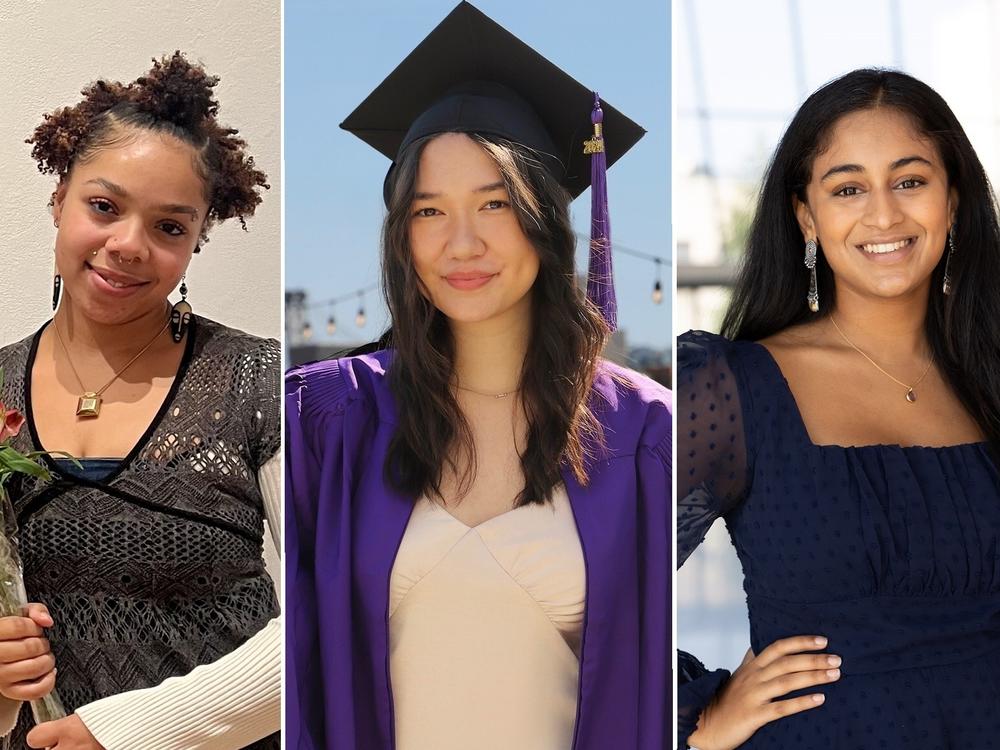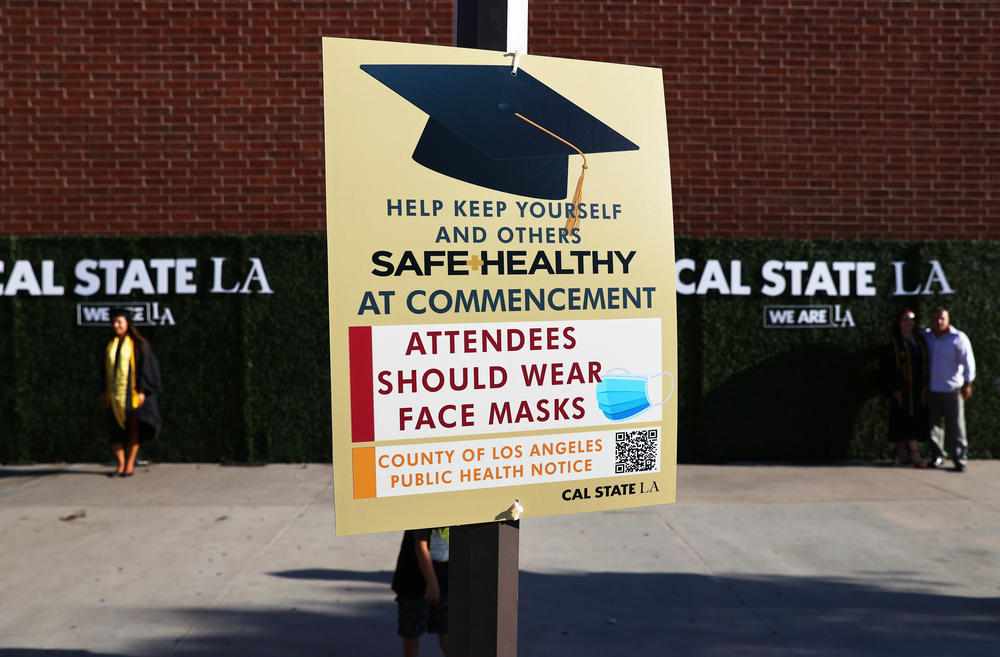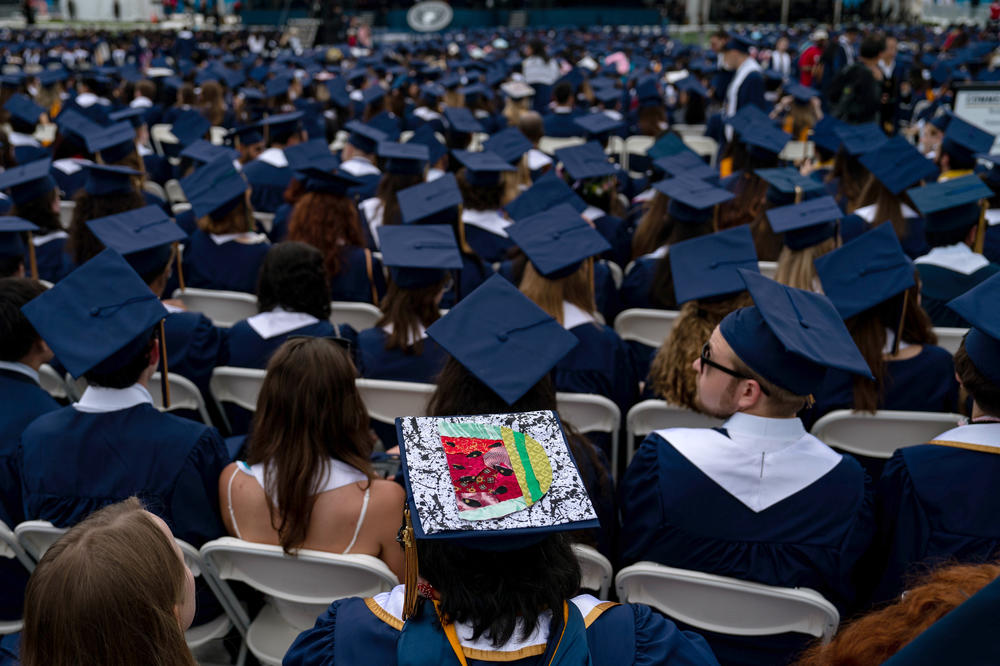Section Branding
Header Content
A concentrated dose of history: The class of 2024 looks back
Primary Content
High school seniors in 2020 didn't know what to expect when they got word of an extended break from school due to a new virus.
And as the COVID pandemic worsened, those same students began watching their expected milestones speed by them: prom, graduation and closure as they moved on from grade school to the next chapter of their lives.
"I feel like when you think of the past four years and when you think of 2020, your mind immediately goes to COVID-19, because ... it affected our senior year of high school and then especially our freshman year of college," Mei Lamison said. "And it kind of dwindled also into our sophomore and at least junior year."
Lamison is a member of the class of 2024, a group of college students that have faced a unique mix of unprecedented events during their undergraduate lives. She joined two other graduates, Alexis Jones and Anaka Srinivas, in speaking with All Things Considered host Ailsa Chang about what the class of 2020 has experienced, and how it has changed their outlook on life moving forward.
You're reading the Consider This newsletter, which unpacks one major news story each day. Subscribe here to get it delivered to your inbox, and listen to more from the Consider This podcast.
Everything, everywhere all at once
There was, of course, the restriction and isolation from the pandemic that steeped their early college days in uncertainty and fear.
"It definitely made college feel kind of dystopian, and didn't really feel like what college was supposed to feel like, or at least what you anticipate college is going to be like when you are in high school," Lamison said.
Alongside that history, Srinivas says making the basic transition to college was much more overwhelming, thanks to the online aspect.
"It was really, really difficult because I think a lot of the kind of resources and support that you receive from the university, a lot of that comes from that orientation experience and getting to visit all these different offices and seeing what the school has to offer. Doing that online, I just remember it being incredibly overwhelming," she said.
"I think it's easier maybe when you're a freshman on campus and you're walking around with this group of friends and you're like, 'Oh, let's go do this, let's go do that.'"
"Everyone tells you when you're growing up that you live through history. But I don't think anyone prepared us for this much history," Lamison said. It was a concentrated dose of history for these students.
Grief, reflection and moving forward
Student movements and protests, starting with Black Lives Matter marches in the wake of the death of George Floyd in 2020, and spanning to the student encampments in support of Palestinians have punctuated the academic experiences of these students.
"Seeing all of that happen and then ... whining about not having a graduation, that's what it felt like, you know? Like, I think all of the things that were happening in the world served to provide some perspective in a way, in the sense that things could be so much worse for us," Srinivas said.
Lamison describes an ennui rooted in resilience and dread.
"I don't think that a lot of people and a lot of students in particular are happy with where we're at. And so when we think also about how the pandemic has reshaped our view on the world, even though I do think it has given me resilience and my class resilience, it has given me also this expectation that things are going to get worse ... like, a little bit of existentialism."
Jones wants to use that energy to move forward.
"If this is the state of the world, what is my response to that? What is my communal and unified response to that? And I feel that that is where the positivity comes in," she said. "And seeing everybody pull together for these various causes and be so young and also be experiencing so many things at the same time, I think kind of sets it up so that in the future, when we're all graduated, we still have this unity and we also rely on this community that we've been able to develop."
For the full conversation with the students on moving forward, listen to the full episode of Consider This by tapping the play button at the top of the page.



